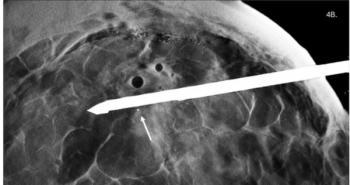
GE gets OK for functional anatomical mapping
Only months after introducing its Functional Anatomic Mapping technology at the Society of Nuclear Medicine meeting (SCAN 6/23/99), GE Medical Systems has won clearance for the technique from the Food and Drug Administration. The technology
Only months after introducing its Functional Anatomic Mapping technology at the Society of Nuclear Medicine meeting (SCAN 6/23/99), GE Medical Systems has won clearance for the technique from the Food and Drug Administration. The technology combines x-ray tomographic capability with a gamma camera, enhancing anatomic detail with functional capabilities. Millennium VG gamma cameras with the technology have been installed at such clinical sites as Vanderbilt University in Nashville, TN, and Rambam Medical Center in Israel. The Milwaukee-based company expects Functional Anatomic Mapping to be available to clinicians next year, according to Beth Klein, general manager of global nuclear medicine/PET for GEMS.
In other news, GE and OEC Medical Systems announced last month that the antitrust waiting period for the two firms planned merger, in connection with the governments review of the deal, has expired. GE and OEC signed a definitive merger agreement in August in a transaction estimated at $480 million (SCAN 8/18/99). Milwaukee-based GE attributed its interest in OEC to OECs strong position in the fluoroscopy and surgical x-ray markets. The deal will be put before OEC shareholders for approval at a meeting Nov. 29. If shareholders vote to approve the merger, it will close immediately following the meeting and OEC shareholders will receive approximately $36 per share, payable in GE common stock.
Also last month, GE introduced MINItrace, a cyclotron designed to produce radiopharmaceuticals for individual PET sites (SCAN 5/26/99). With MINItrace, GE hopes to reduce the cost of producing cancer-detecting tracers and facilitate their use in neighborhood hospitals and clinics.
Newsletter
Stay at the forefront of radiology with the Diagnostic Imaging newsletter, delivering the latest news, clinical insights, and imaging advancements for today’s radiologists.














